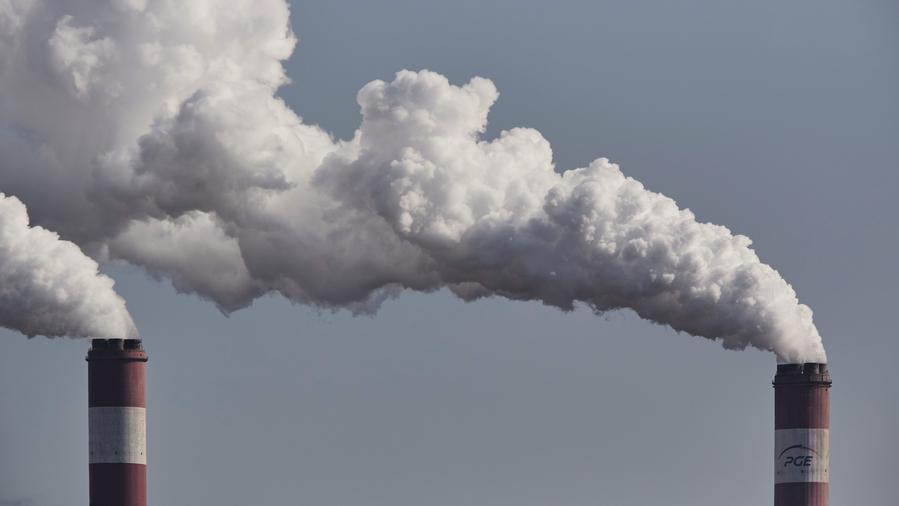 Vapor rises from chimneys at the Belchatow coal powered power plant, operated by PGE SA, in Belchatow, Poland, on Wednesday, April 28, 2021.(BARTEK SADOWSKI / BLOOMBERG)
Vapor rises from chimneys at the Belchatow coal powered power plant, operated by PGE SA, in Belchatow, Poland, on Wednesday, April 28, 2021.(BARTEK SADOWSKI / BLOOMBERG)
ZURICH - The pace of climate change has not been slowed by the global COVID-19 pandemic and the world remains behind in its battle to cut carbon emissions, the United Nations said on Thursday.
The virus-related economic downturn caused only a temporary downturn in CO2 emissions last year and it was not enough to reverse the rising levels of greenhouse gases in the atmosphere, the World Meteorological Organization (WMO) said.
The virus-related economic downturn caused only a temporary downturn in CO2 emissions last year and it was not enough to reverse the rising levels of greenhouse gases in the atmosphere, the World Meteorological Organization said
Reduction targets are not being met and there is a rising likelihood the world will miss its Paris Agreement target of reducing global warming to 1.5 degrees Celsius above pre-industrial levels, the WMO said in its United in Science 2021 Report.
"This is a critical year for climate action," UN Secretary-General Antonio Guterres said, saying the results were an "alarming appraisal of just how far off course we are."
"This year has seen fossil fuel emissions bounce back, greenhouse gas concentrations continuing to rise and severe human-enhanced weather events that have affected health, lives and livelihoods on every continent," he said.
Concentrations in the atmosphere of the major greenhouse gases - CO2, methane and nitrous oxide - continued to increase in 2020 and the first half of 2021, the UN said.
ALSO READ: World needs to be carbon neutral by 2050
The average global temperature for the past five years was among the highest on record, estimated at 1.06C to 1.26C above pre-industrial levels.
There is now a 40 percent chance that average global temperature in one of the next five years will be at least 1.5C warmer than pre-industrial levels, the report said.
"Unless there are immediate, rapid and large-scale reductions in greenhouse gas emissions, limiting warming to 1.5C will be impossible, with catastrophic consequences for people and the planet on which we depend," Guterres said.
The United in Science 2021 report presents the latest scientific data and findings related to climate change.
"Throughout the pandemic we have heard that we must build back better to set humanity on a more sustainable path and to avoid the worst impacts of climate change on society and economies," said WMO Secretary-General Petteri Taalas.
READ MORE: Rich nations are missing the US$100b climate finance goal
"This report shows that so far in 2021 we are not going in the right direction," he said.


